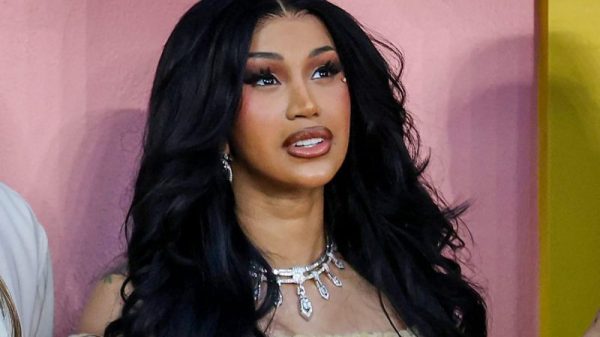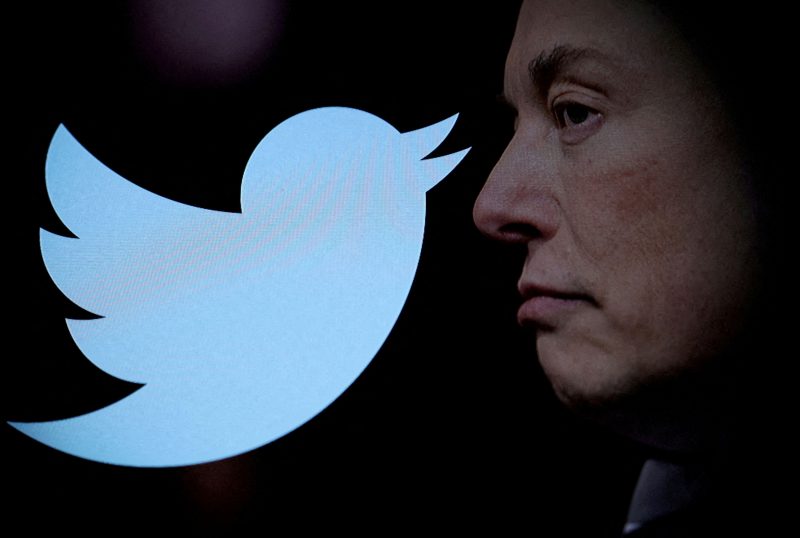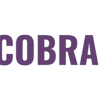LOS ANGELES — On Thursday, Twitter announced that it would begin sharing ad revenue with content creators on its platform for the first time. But the offer won’t apply to all creators.
The first beneficiaries appear to be high-profile far-right influencers who tweeted before the announcement how much they’ve earned as part of the program. Ian Miles Cheong, Benny Johnson and Ashley St. Claire all touted their earnings.
“Wow. Elon Musk wasn’t kidding. Content monetization is real,” tweeted an anonymous account called End Wokeness, with 1.4 million followers, accompanied by a screenshot showing earnings of over $10,400.
So far, the influencers who have publicly revealed that they’re part of the program are prominent figures on the right. Andrew Tate, for example, who was recently released from jail on rape and human trafficking charges, posted that he’d been paid over $20,000 by Twitter.
“This is a nice turnaround from being banned by Twitter 1.0 for almost 2 years to now being paid to post Thank you @elonmusk,” tweeted far-right influencer Rogan O’Handley, known as DC Draino.
But not all prominent right-wing Twitter contributors appeared to be part of the program. When asked if she was part of the program, Chaya Raichik, the creator of @libsoftiktok, offered a tongue-in-cheek response claiming that her relationship with Musk was thriving. She did not respond to a question about whether she was receiving payments under the program.
Musk did not respond immediately to a request for comment emailed to him at Twitter and at SpaceX, another company he owns.
“I think that there are some conservative content creators who are unhappy,” said Kris Ruby, a conservative influencer and president of Ruby Media Group. “It doesn’t seem even across the board. I don’t think the playing field is level.”
She said some on the right who weren’t included in the program, despite meeting all the criteria, are venting in private. “Most conservatives don’t want to go up against the wrath of Elon and what happens when you criticize him,” she said. “We’ve seen that he’s not really applying the terms of service equally across the board.”
Twitter claimed, in a blog post, that creators’ share of advertising revenue would be based on a calculation of replies to their posts and monthly impressions. The program is only available in countries where Stripe, a payment platform, supports payouts, and recipients must pay for Twitter Blue, the platform’s monthly subscription service, to be eligible.
Not all creators who want to monetize will be able to. Creators who apply to the program will have to pass “human review” and there is currently no open application for those interested in joining.
Some nonpolitical contributors expressed frustration with the lack of transparency from the company over the rollout of the program.
“My tweets have generated 100s of millions of impressions for Twitter every year,” Matt Navarra, a social media strategist who runs the tech-focused newsletter and community Geekout, posted on Thursday. “And I’ve been on the platform for 15+ years. It’s pretty lame there is no payout coming my way. Twitter has never generated any income directly for all the content I have put in to it.”
Former Twitter staffers who worked on creator-focused products expressed skepticism over the rollout, with several calling it a PR stunt. One former Twitter executive who worked on creator partnerships and who asked to remain unnamed to avoid retaliation, said that, “any kind of content monetization we’ve done in the past was based on a revenue model. This just feels pulled out of thin air for a specific subset of creators that he wanted to placate.”
The former Twitter executive also cast doubt on Twitter’s revamped metrics, including impressions. “The numbers are totally and completely bogus,” she said. “It’s all completely made up. It really feels like they’re arbitrarily writing checks to people they like, which is not a sustainable creator strategy.”
Latasha James, a full-time YouTube creator in Detroit, said that Twitter is too volatile for content creators to invest much time in. “As a creator, I seek out monetization opportunities with brands and platforms that seem well-funded and stable,” she said. “Twitter has been the opposite of stable for the past year, so I’d definitely be wary of relying on their monetization program to make a living.”
Others agreed that even if Musk were to offer every creator a payout, the site’s rightward turn would keep them from posting.
“He’s censoring speech that he doesn’t like and amplifying speech that he does and he’s picking the people that he wants to have a voice on the platform and silencing others,” said Rathbone DeBuys, a musician and content creator in New Orleans, who monetizes on TikTok. “It seems like there’s no rhyme or reason to it. He’s decided arbitrarily that these are the people who are going to make money off the platform because these are [his] friends.”
“I try to respect my values in my business and I feel like the things Elon has been doing are not aligned with my values,” said Lu Levy, a YouTube content creator and digital business coach for content creators. “ … I already get such good monetization on other platforms, especially YouTube, it’s just not worth going against what I believe in.”
The timing of Musk’s announcement comes on the heels of Twitter rival Instagram announcing that its Twitter-like app Threads had surpassed 100 million sign ups in under a week, making it the fastest growing app of all time. Jordan Lintz, owner of HighKey Enterprises, a public relations firm, said that he thinks Threads should takes a cue from Twitter’s new monetization offerings. “Threads user retention is going to slip eventually,” Lintz said. “I think whoever provides the best monetization will win the retention race. It’s something Threads might have to look into.”
Jules Terpak, a content creator and digital culture expert, said that as someone who tweets a lot, the prospect of earning money from posts is appealing, but she’s watching to see how Musk will handle thorny issues like content theft and bots. She’s also wondering if this new monetization plan is sustainable, given Twitter’s struggle to retain advertising revenue.
“As soon as I’m seeing these amounts, my first question is how is this going to be sustained,” she said. “The track record so far with Elon’s ownership is that a lot of things that sound very pretty, then you see them in action and there’s these more negative nuances to it.”





























